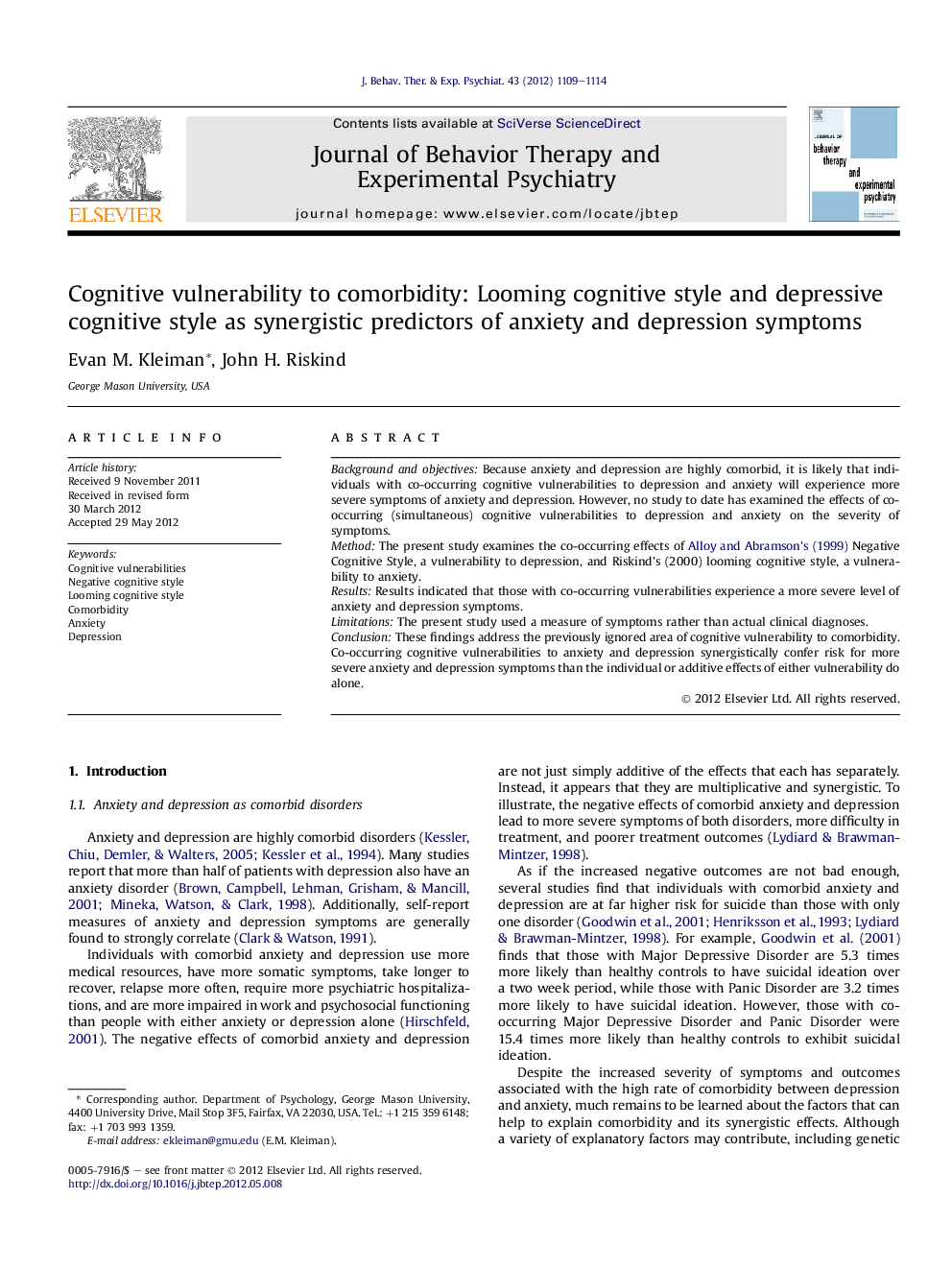| Article ID | Journal | Published Year | Pages | File Type |
|---|---|---|---|---|
| 910459 | Journal of Behavior Therapy and Experimental Psychiatry | 2012 | 6 Pages |
Background and objectivesBecause anxiety and depression are highly comorbid, it is likely that individuals with co-occurring cognitive vulnerabilities to depression and anxiety will experience more severe symptoms of anxiety and depression. However, no study to date has examined the effects of co-occurring (simultaneous) cognitive vulnerabilities to depression and anxiety on the severity of symptoms.MethodThe present study examines the co-occurring effects of Alloy and Abramson’s (1999) Negative Cognitive Style, a vulnerability to depression, and Riskind’s (2000) looming cognitive style, a vulnerability to anxiety.ResultsResults indicated that those with co-occurring vulnerabilities experience a more severe level of anxiety and depression symptoms.LimitationsThe present study used a measure of symptoms rather than actual clinical diagnoses.ConclusionThese findings address the previously ignored area of cognitive vulnerability to comorbidity. Co-occurring cognitive vulnerabilities to anxiety and depression synergistically confer risk for more severe anxiety and depression symptoms than the individual or additive effects of either vulnerability do alone.
► We examined the effects of co-occurring vulnerabilities to anxiety and depression. ► These vulnerabilities predict higher anxiety and depression symptoms. ► This highlights the importance of studying vulnerabilities when they co-occur.
